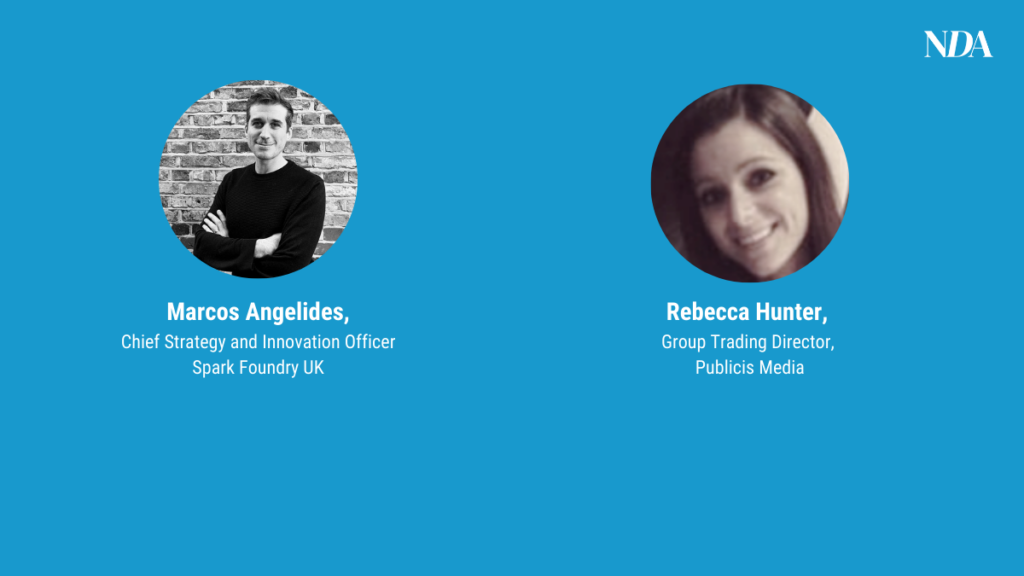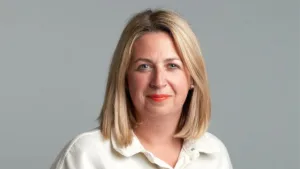Following a column from NDA Editor Justin Pearse highlighting the fact that around 80% of opinion articles submitted to the media are accredited to. men, we have been talking to leaders across the industry to gather views on the reasons for this situation and how it can be addressed.
First up is a joint view from Rebeca Hunter, Group Trading Director, Publicis Media and Marcos Angelides, Chief Strategy and Innovation Officer at Spark Foundry UK
Why do you think the majority of thought leadership articles submitted to the press are by men?
BH: This pertains to a mixture of confidence and opportunity. There are more men in leadership roles, so if we are being honest they get asked more for their opinion, as well as being asked to join industry panels.
Countless studies have also shown there is still a massive disparity in favour of men when it comes to asking for what they want in work and confidence in voicing their thoughts.
MA: I realise that I have an outsiders perspective on this, but I believe there are two reasons.
Firstly, there are a lot of men out there who are ready to volunteer an opinion, regardless of whether they have any knowledge of the subject.
In my experience, women are more likely to consider if someone else is more qualified to share their thoughts before they volunteer their own. Unfortunately this often provides space for a less qualified man to barge in and start shouting.
The second reason is that women face more scrutiny for their words. All you have to do is look at LinkedIn or Twitter to see the number of men criticising, correcting or arrogantly patronising female writers. Yes, it happens to men too. But let’s be honest, women face it much more regularly.
And this is just the comments we can see in the threads. Women have to face an avalanche of abuse in their DMs, even on professional networking sites.
This is what we have to change. Women aren’t writing less because they don’t have something to say. They’re writing less because too many other voices are actively trying to drown theirs out.
What’s needed to encourage companies to increase the diversity of their public voices?
RH: Senior leaders can promote under-represented voices, providing a platform for up-and-coming diverse talent to write online pieces or join panels. We see many of the same senior voices covering topics, which could have been a chance to shine the light on less experienced but brilliant talent.
MA: Firstly, companies need to recognise the problem. I was shocked when you said how many articles you receive from men vs women. At Spark Foundry we’ve taken many steps to improve our representation, which has also led to a greater variety of voices writing for us. But it’s a reminder of how easy it is to fall into unconscious bias; and that every agency has more work to do.
The other element is that companies need to trust their junior staff more. It’s very easy to rely on a handful of senior experts, but that ultimately stifles opportunities for new voices to emerge.
The first couple of articles I wrote for the trade were shit (tbh – many still are). But someone took a gamble on me and knew I would get better over time. That’s what companies need to do more often with their staff (and that means all staff).
What do you think are the negative effects of this situation on both the respective companies and the wider industry?
RH: Lack of diverse representation impairs progression, both for agencies and clients. Broadening the number of perspectives brought into a discussion will only amplify innovation and encourage more engaging conversations. We need more exposure of non-male role models to inspire the next generation of digital leaders!
MA: Exactly that, nothing changes. In an industry that sells itself on adapting and changing with the times, to sit and do nothing is the same as going backwards.
That’s what’s so difficult to understand about the lack of momentum with D&I. On every level it makes sense, it’s both morally and commercially the right thing to do. So there should be nothing stopping us.
I moved to Spark Foundry because of their commitment to driving D&I forward, and the increase in representation over the past 12 months (especially at senior levels) has been incredible to see. But the more progress we make the more we realise how much further we need to travel.
The job isn’t done, it’s only just getting started.









